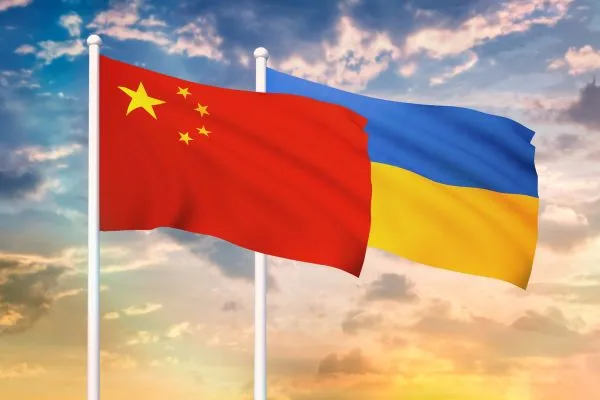
This brief is a part of
The Ukraine Crisis: Cause and Course of the Conflict.
A month into the devastating war in Ukraine, new equations are at play in the Chinese strategic landscape. There seems to be a growing uneasiness in China over the international community’s perception about the China-Russia bonhomie.
It is being argued that the Russia–Ukraine war has created a negative image of Russia globally—that of an aggressor or even a rogue nation/international pariah. China’s close association with Russia, particularly highlighted by Putin’s personal visit to China during the Winter Olympics, and both sides issuing a lengthy joint statement committing to a “limitless friendship”, right before the war broke out, has created the global impression of a Moscow–Beijing collusion over Ukraine. Chinese scholars such as Huang Jing, Distinguished Professor of Shanghai International Studies University;
Zheng Yongnian, Presidential Chair Professor, at the Chinese University of Hong Kong, Shenzhen, are of the opinion that this has been negatively impacting China’s image at the international level, nullifying years of effort to project itself as a peaceful international actor, seeking to build a community with a shared future for mankind. This close association between the two has strengthened the argument of those who seek to demonise China. Secondly, at a time when the United States (US) and Europe have formed a strong anti-Russian united front, China is increasingly finding its ties with various European countries getting strained due to its close association with Russia.
On one hand, many are apparently sympathetic to the Ukrainian cause and see the Ukrainian struggle against Russia as “people’s war”, and have even compared with China’s War of Resistance against Japan.
Of late, two opposing opinions seem to have developed within the Chinese public. On one hand, many are apparently sympathetic to the Ukrainian cause and see the Ukrainian struggle against Russia as “people’s war”, and have even compared with China’s War of Resistance against Japan. Also, questions are being raised about the national strategy of supporting Russia, on the grounds that in the past, Tsarist Russia had occupied Chinese territories, had been aggressive, and had committed various atrocities vis-à-vis the Chinese nation, whereas the US, has not only never occupied Chinese territory, but also have made positive contributions to China’s development. Looking at the present stalemate in Ukraine, many also fear that Ukraine’s success will soon prove the victory of the West and the western system, and China will find itself on the losing side, further marginalised at the global level. While siding with the US, or at least offering positive cooperation, as China did after 9/11, may cause history to repeat itself and restore the otherwise fraying China–US ties.
However, these arguments are being vehemently opposed and fiercely countered by yet another section of the Chinese strategic community, on the grounds that if it was not Russia, it would have been China which would have been at the forefront of the American or the western economic/military onslaught. If it weren’t for the
Russia-Ukraine war stealing the limelight, the China–US trade war would have further intensified, and Europe and the US would have left no stone unturned to torment China over Xinjiang, Hong Kong, Tibet, etc. If Russia falls, they say, it will be
China next, with Chinese strategic environment becoming even more debilitating and America’s repression of China even more reckless.
It is important to note here that there exists a
deep-seated concern in the Chinese psyche. Looking back at the events of the past, they fear that just like in the Cold War days, when the US government abruptly turned the tide in US–China relations to jointly deal with the Soviet Union, in the current situation the US will eventually draw a less-powerful Russia to jointly deal with China, which presently poses a greater challenge to the US.
If Russia falls, they say, it will be China next, with Chinese strategic environment becoming even more debilitating and America’s repression of China even more reckless.
Even as, in the current circumstances, US–Russia ties appear to be completely estranged and torn apart, with no room for improvement in ties, Chinese strategists such as
Huang Jing have been cautioning about two “black swan” events that might emerge from the Ukraine crisis. In his analysis, the “post-Putin era” will come sooner or later, and the possibility of Putin’s successor making a strategic reversal cannot be ruled out. On the other hand, judging from the current situation, he
argues, that the mid-term elections in the US might not go in favour of the Democratic Party led by Biden, which will not only weaken him, but will also make it particularly difficult for him to get re-elected in 2024. If the White House changes hands in 2024, and radical candidates similar to Trump get elected, the “Nixon moment” in the US–Russia ties is not unlikely.
In the short term, he further
warns of a sudden turn in the situation in Ukraine. If Russia wins, he says, a more confident and secure Russia may be more compromising in its policies towards the US and Europe, and the West may also be willing to make some kind of deal with Putin on the premise of accepting the reality, and thereby, withdrawing themselves from the “Ukraine trap”. On the other hand, if Russia fails to secure victory for itself, then some kind of compromise with the West will be even more likely. Whatever be the situation, a Russia, controlled or dominated by the US or NATO is a red flag for China, and it is keen to guard against such possibilities with full force.
Challenging the world order
It is in this backdrop that a campaign is being run by the Chinese
media projecting Russia as the flagbearer of change; the harbinger of a new global order, challenging the current unjust, unequal world system, dominated by the West. It is being argued that if Russia collapses under the burden of “
the financial nuclear bomb” dropped by the West, it will prove that the sanctions regime of the western countries still has considerable power, further adding on to the heft of the western developed world over the international system. Also indicating that sooner or later, the same fate will befall upon other emerging powers, which attempt to challenge the system, whether it is China or India. China is, therefore, keen to mobilise global support, if not for Russia, but for the anti-sanction cause, which in a way will also absolve itself from the negative publicity that it has been facing of late for its association with Russia.
The US and the western powers are not only unable to return to the Indo-Pacific as per their plans, but are also facing a dilemma in their China policy, i.e., to effectively put pressure on China and avoid a complete alliance between China and Russia.
Some Chinese
scholars and commentators are of the opinion that China must seize this opportunity to organise the developing world, particularly those who are against this sanction regime, to form an alternate trading system, with China, Russia, and Iran at the core, later to be joined by the rest of the developing countries including India. Thus, ensuring that the US financial sanctions meant to crush Russia, marks the beginning of the collapse of “dollar hegemony”.
Meanwhile, China also sees opportunity in the fact that the Russia–Ukraine war has drawn the major powers in the world, including the US, Europe, and Russia, into the “
Ukraine trap”. As a result, the US and the western powers are not only unable to return to the Indo-Pacific as per their plans, but are also facing a
dilemma in their China policy, i.e., to effectively put pressure on China and avoid a complete alliance between China and Russia.
Chinese scholars like
Wu Xinbo, Director, Centre for American Studies, Fudan University; Huang Jing; Zheng Yongnian are of the opinion that China must use this window of opportunity to actively engage in dialogue and exchanges with the Biden administration, and effectively use the Russia card to pressurise it on various Chinese demands and concerns. This is also seen as a chance for China to actively stabilise its periphery, to improve ties with various Indo-Pacific nations as well as to fill the void left in the politics of Central Asia, the Middle East, South Asia, Southeast Asia, Africa and even Latin America by the US preoccupation with Ukraine. There is also a strong
consensus within the Chinese strategic community that China should continue to step up efforts to integrate itself into the world economic system, particularly strengthening economic ties with the European countries, so that when the time comes it is absolutely impossible for the West to repeat the Russian experience with China, without inflicting greater damage to themselves.
It is instructive that all these factors arising out of the Ukraine crisis have been at play as Chinese Foreign Minister Wang Yi reached out to New Delhi last week.
The views expressed above belong to the author(s). ORF research and analyses now available on Telegram! Click here to access our curated content — blogs, longforms and interviews.



 This brief is a part of
This brief is a part of  PREV
PREV


